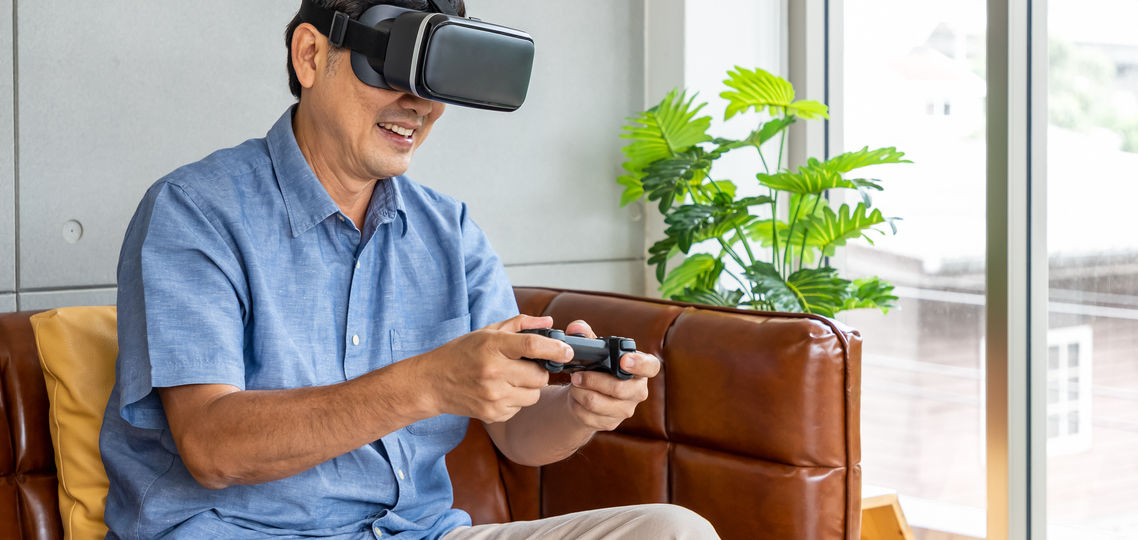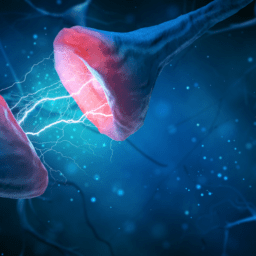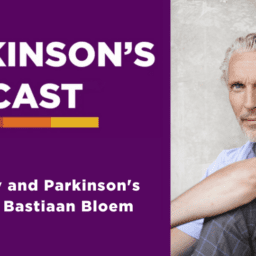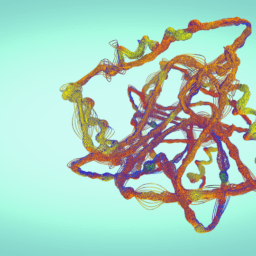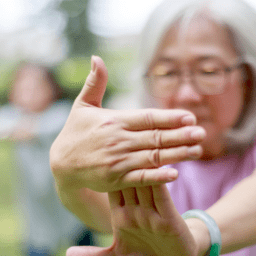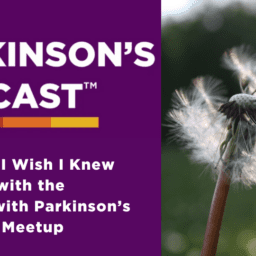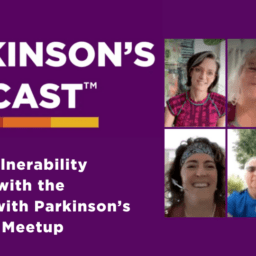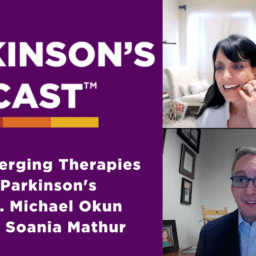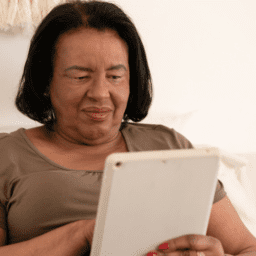Six million variations of Parkinson’s. How cells dispose of defective mitochondria. Virtual reality as a Parkinson’s treatment. The self-regulating feedback mechanisms of dopamine-releasing neurons. Parkinson’s links to melanoma, neuroticism, and herbicides. And so much more. Check out the most important Parkinson’s research, surveys, and stories happening now, and let us know if we missed anything. Happy reading!
PARKINSON’S ARTICLES AND PODCASTS
- In The Lancet, Drs. Bastiaan Bloem, Michael Okun, and Christine Klein provide an in-depth “Seminar” about Parkinson’s and how to optimize the personalized management of it. “Every person has their own unique Parkinson’s,” the researchers write. “An extreme notion would be to say that there are over six million different variations of Parkinson’s in the world.”
- Dr. Simonetta Sipione and her research team at the University of Alberta have received a Canadian Institutes of Health Research grant to investigate whether restoring the levels of a particular type of fatty molecule, called ganglioside, can lessen or even stop the onset of neurodegenerative diseases like Parkinson’s. Dr. Sipione says the team’s goal is “developing a viable treatment that tackles the root of the disease, not just the symptoms.”
- In the journal Science Advances, researchers offer a detailed view of the biochemical pathway surrounding Parkin. This protein that plays a key role in maintaining cellular energy by removing damaged mitochondria. The research team has decoded a major step in the way cells dispose of defective mitochondria, which may help scientists develop new treatments for Parkinson’s, type 2 diabetes, and cancer, all of which can occur when Parkin is not functioning properly.
- Researchers at the University of California, San Diego, have published a paper in Nature Neuroscience that highlights the importance of studying brain circuit-specific adaptations during different Parkinson’s stages. This, they say, can help physicians determine personalized, stage-specific, and symptom-specific treatments that could delay progression.
- “Our findings provide the first evidence that dopamine neurons regulate themselves in the brain,” says Dr. Takuya Hikima about her study recently published in Cell Reports. Using a series of novel cellular models, Dr. Hikima and her team at NYU Grossman School of Medicine found that dopamine-releasing cells in the brain have a self-regulating feedback mechanism that controls their activity. Their findings contradict the prevailing view that nearby cells “control” neurons by regulating dopamine’s release.
- A new large-scale, longitudinal study has found that double vision is common in Parkinson’s, impacting as many as 30% of people with Parkinson’s. Because double vision is easily treatable but is not always mentioned in appointments, the researchers emphasized the importance of screening people with Parkinson’s for visual symptoms in addition to other non-motor symptoms.
- Dr. Jill Farmer presented at the American Academy of Neurology results from a survey co-sponsored by PMD Alliance and Adamas Pharmaceuticals detailing the impact of OFF time and dyskinesia in people living with Parkinson’s. The results, based on 775 respondents, showed that 76% of respondents reported experiencing OFF times, and 51% reported experiencing dyskinesia; 48% of respondents reported experiencing both OFF and dyskinesia. Between 86% and 90% said they experienced these problems daily, and more than 60% said they change plans and activities due to these motor complications.
- To develop evidence-based recommendations for improving dental health in people with Parkinson’s, researchers in Brazil conducted a review of 14 published studies about various aspects of oral health. Published in Neurology and Therapy, the review, which involved data from nearly 800 people with Parkinson’s, showed that people with Parkinson’s experienced oral health concerns including gum recession, tooth decay, periodontal disease, dry mouth, difficulty swallowing, and excessive drooling. Their recommendations for improving oral health included routine tooth-brushing with alternating hands, regular dental check-ups, and several condition-specific treatments.
- At the spring meeting of the American Chemical Society, researchers at the National Heart, Lung, and Blood Institute shared their findings of a link between Parkinson’s and melanoma. The team investigated whether alpha-synuclein (the protein found at highly elevated levels in people with Parkinson’s) and pre-melanosomal protein, both of which are expressed in melanoma cells, could interact and, if so, whether this interaction could be relevant to the correlation between Parkinson’s and melanoma. Their findings did show an interaction, leading the team to suggest that a loss of skin pigmentation could contribute to the increased melanoma risk in people with Parkinson’s.
- Electrogastrography (EGG) may lead the way to earlier diagnoses of Parkinson’s. A study of 37 people with untreated Parkinson’s and 20 control participants explains that EGG, which can noninvasively assess gastric electric activity, detected irregular EGG waves in the people with Parkinson’s and higher preprandial instability coefficient of dominant frequency (ICDF), an index of EGG irregularity. The findings revealed that EGG showed better accuracy than an olfactory test for early Parkinson’s diagnosis.
- A meta-analysis study published in Movement Disorders posits that having neuroticism, a personality trait centering around a long-term tendency to be in a negative or anxious emotional state can make someone more susceptible to Parkinson’s. Analyzing data collected by the UK Biobank of nearly half a million people for 12 years, researchers at the Florida State University College of Medicine found that people who scored in the top quartile of neuroticism had more than an 80% greater risk of Parkinson’s, compared to those who scored lower.
- Aware of the concern that COVID-19 survivors might be at an increased risk of neurological disorders, including Parkinson’s, a team of researchers studied the medical records of a primary cohort of 236,379 people diagnosed with COVID-19 and compared these to cohorts diagnosed with other respiratory tract infections and with influenza. The results, published in The Lancet, showed that overall, COVID-19 was associated with increased risk of neurological and psychiatric outcomes in the six months following onset. The incidences and high risks were greater in people who had required hospitalization and markedly so in those who had required intensive therapy unit admission or had developed encephalopathy.
- In a study recently published in the Journal of Cognitive Neuroscience, researchers from the Penn Center for Neuroaesthetics at the University Pennsylvania’s Perelman School of Medicine found that people with Parkinson’s view and evaluate art differently than people who are not living with Parkinson’s, showing how the brain’s ability to construct abstract representations of movement influences people’s aesthetic experiences of art.
- The first two product defect lawsuits have been filed in federal court against the agrochemical company Syngenta Group, alleging that exposure to the herbicide paraquat led to Parkinson’s in two individuals. Numerous scientific studies have established links between paraquat and Parkinson’s, and more than 50 countries have banned the chemical because of the risks associated with it.
- Scientists at Scripps Research have found evidence that experimental antibody treatments for Parkinson’s that target abnormal build-ups of alpha-synuclein may cause brain inflammation, negating their positive effects.
- In an interview with The Guardian, Dr. Ray Dorsey explains how trichloroethylene (TCE), a chemical compound used in industrial degreasing, dry-cleaning, and some household products, is linked to the development of Parkinson’s. “Parkinson’s is already the fastest-growing neurological disorder in the world; in the US, the number of people with Parkinson’s has increased 35% the last 10 years, says Dorsey, and ‘We think over the next 25 years it will double again.’”
- Are you a neurologist and member of the American Academy of Neurology? If so, you are eligible for anti-racism training program, offered for free to AAN members in the US and funded by a grant from the Health Equity Innovation Fund to support groundbreaking solutions to promote health equity and diversity in STEM from kindergarten to career.
- In a “When Life Gives You Parkinson’s” podcast episode, three women share stories about pregnancy, giving birth, and parenting while living with Parkinson’s.
- On a recent Parkinson’s Recovery podcast episode, a man nicknamed “Mountain Sage” shares the lessons he learned from hiking the Appalachian Trail while living with Parkinson’s.
- Adamas launched their “Picture More Time” campaign to raise awareness and understanding of the impact of OFF time and dyskinesia for people with Parkinson’s and care partners.
PARKINSON’S THERAPIES AND MEDICATIONS
- Sponsored by Georgetown University, data from a Phase 2 trial studying the long-term effects of Tasigna (nilotinib), an approved leukemia medication, found it to be safe and tolerable at high and low doses in people with Parkinson’s who were enrolled in the trial for more than two years. There were no reported treatment-related adverse side effects. The drug may improve Parkinson’s symptoms by eliminating toxic proteins that build in the brains of people with Parkinson’s. Researchers hope the data from this trial will help inform a more extensive study evaluating the efficacy of Tasigna at a 300-mg dose as a Parkinson’s treatment.
- To study the relationship between motor skill acquisition, sleep quality, and sleep-related biomarkers in people with Parkinson’s, researchers at the Jordan University of Science and Technology in Jordan used a virtual reality (VR) system in the first study of its kind. Sixty-two participants (31 people with Parkinson’s and 31 people without Parkinson’s) practiced a VR game six times. The research team studied data on the required time to complete the game and the recorded errors. Sleep was assessed subjectively using Pittsburgh Sleep Quality Index (PSQI) and objectively using the Actisleep, and participants’ plasma serotonin levels were assessed to assess sleep-related biomarkers. Findings led the researchers to conclude that sleep quality may influence motor skill acquisition in people with Parkinson’s and that therapies that target improving sleep quality could improve motor skill acquisition.
- PharmaTher has submitted an investigational new drug application to the US Food and Drug Administration (FDA) to initiate a Phase 2 study of low-dose ketamine, a prescription painkiller, for treating levodopa-induced dyskinesia.
- Data from a small proof-of-concept study of the investigational medication SEP-363856 (which is being developed by Sunovion) showed improvements across several scales without worsening of motor symptoms, suggesting that it may provide a novel treatment for Parkinson’s psychosis, particularly for people living with Parkinson’s who have experienced cognitive impairment.
- In an April article highlighting the National Institutes of Health’s phase 3 randomized clinical study of the benefits of exercise on the course of Parkinson’s, the AARP explained how doctors who treat Parkinson’s say that “at least two and a half hours a week of exercise can help with declining and impaired mobility and increase quality of life.”
- In US News and World Reports, Dr. David Eidelberg explains why he believes “we are on a cusp of treatment and diagnostic breakthroughs” for Parkinson’s and why it is crucial for people with Parkinson’s to get involved in research studies.
- The digital therapeutics company MedRhythms has initiated a multi-site clinical trial of MR-005, a digital therapeutic for Parkinson’s walking impairments. Led by Dr. Terry Ellis, the study will evaluate the clinical efficacy of MR-005 when used remotely in the home setting. “Music, particularly Rhythmic Auditory Stimulation, is a promising intervention for individuals with Parkinson’s,” Dr. Ellis says, “as has been shown through decades of evidence in its ability to improve gait and reduce falls in this population. MR-005 provides an opportunity for this intervention to be delivered at scale.”
- With one goal of reaching underserved Parkinson’s communities in remote areas of the US, PhotoPharmics (in collaboration with the Center for Health + Technology at the University of Rochester Medical Center) plans to open a Phase 3 clinical trial of its light-based and noninvasive Celeste device in treating Parkinson’s symptoms. The device, which uses a combination of light intensities and bandwidths to help regulate circadian rhythms, has been shown in previous trials to help regulate essential functions such as sleep and metabolism. The Phase 3 trial’s primary goal is to assess the impacts of the phototherapy device on the motor and non-motor symptoms of 200 people with Parkinson’s when used by participants in their own homes.
- Scientists at Switzerland’s science and technology institution EPFL have developed algorithms that, combined with wearable sensors, could help doctors optimize medication dosages for people with Parkinson’s and also monitor the progression of Parkinson’s. Using algorithms that analyze motion data from foot-worn sensors, the researchers monitored patients’ gait speed around the clock, which allowed them to see the effects of medication more fully.
- In other algorithm and Parkinson’s news, a research team at Okayama University in Japan is exploring whether a new AI system can detect subtle changes in facial attributes associated with Parkinson’s to help monitor changes and progression.
PARKINSON’S LIVING WELL STORIES
- Fifty-nine-year-old Sam Wragg, who says his photography skills have improved since he was diagnosed with Parkinson’s four years ago, has become a local celebrity in Sheffield during the pandemic lockdown. “Since being diagnosed, I’ve found it’s actually improved my eye for a photo and made me more artistic,” he says.
- Marjorie Samoff, who founded the Parkinsingers Choir in 2015, says it has become “the most life-enhancing project you can imagine.” The group uses music to help people with Parkinson’s and other movement disorders manage symptoms, connect with others, “be our best selves… and live with Parkinson’s as well as we can.”
- As part of World Parkinson’s Day, several people living with Parkinson’s collaborated with the Picturing Parkinson’s Project based at the University of Oxford to create a short film featuring their inspiring artwork and music.
- “I suggest that everyone who has [Parkinson’s] take a moment to thank those around them who help make their lives as full of joy as possible,” writes Dr. C in his column about care partners. “The support partnership, when it functions well, is a thing of grace and beauty.”
- At the 2021 virtual Hawaii Parkinson Association Symposium, American Ninja Warrior Jimmy Choi, diagnosed with Parkinson’s at age 27, shares how he uses “motivation, discipline, and determination” to live well each day.
- Veterans living with Parkinson’s are at greater risk for social isolation and loneliness than the general population. To help minimize this risk and offer veterans new ways to connect with others, the VA Center for Development & Civic Engagement has created a new social prescription program, Compassionate Contact Corps.
- “We all have our masks. Parkinson’s or not, we choose which version of ourselves to share with others.” In her April “Life, Lemons, and Lemonade” column, Lori Deporter shares her thoughts on facial masking and living well with Parkinson’s.
PARKINSON’S SURVEYS, CLINICAL TRIALS, and volunteer opportunities
Do you have early-stage Parkinson’s? The Orchestra Study is a clinical research study to evaluate the use of an investigational medication called UCB0599 in men and women with early-stage Parkinson’s. You can learn more and see if you qualify here.
Want to learn more about findings around OFF and dyskinesia? Check out this infographic.
PAIRing Up – If you are a person with Parkinson’s or a care partner to someone with Parkinson’s, you are invited to participate in an online survey to address neuropsychiatric (cognition, depression, anxiety) concerns in Parkinson’s. The survey aims to learn about the needs and priorities for clinical care, education, support, and research related to neuropsychiatric symptoms. To learn more and participate, click here to download the flyer.
A multidisciplinary research team in the UK is investigating how to best use music to help people with Parkinson’s manage symptoms related to movement and mood. This includes research about music for dancing and is the first study to incorporate the new Dance Sophistication Index for people with Parkinson’s. To learn more and take a 30-minute survey, click here.
The University of Oulu and collaborators from Aalborg University, Fraunhofer University, the University of Manchester, the University of Glasgow, the University of Lisbon, and the University of Melbourne, are conducting a survey for people with Parkinson’s and Parkinson’s care partners about self-care. Complete the survey here to share your self-care strategies and techniques. You can also review ideas submitted by others and add them to your own self-care toolbox.
Parkinson’s Progression Markers Initiative (PPMI) Screen Survey – The Michael J. Fox Foundation
Home-based Exercise and Cognitive Behavior Therapy – University of Alabama in Huntsville
Speech and Telemedicine Study – The Purdue Motor Speech Lab
Parkinson’s and Service Dogs – University of Groningen, Netherlands
Neurology Study Interest Registry – University of Rochester
Park Test – University of Rochester
Project Euphonia – LSVT Global and Project Euphonia
BouNDless – Phase 3 trial to investigate the efficacy, safety, and tolerability of ND0612, a continuous subcutaneous levodopa/carbidopa delivery system in comparison to oral levodopa/carbidopa in people with Parkinson’s experiencing motor fluctuations
WANT MORE PRACTICAL ARTICLES LIKE THIS?
You can find much more in our Every Victory Counts® manual. It’s packed with up-to-date information about everything Parkinson’s, plus an expanded worksheets and resources section to help you put what you’ve learned into action. Request your free copy of the Every Victory Counts manual by clicking the button below.
Thank you to our sponsors for helping us provide the Every Victory Counts manual to our community for free.
Our 2021 Peak Partners: Adamas, Amneal, Kyowa Kirin, and Sunovion
Our Every Victory Counts Gold Sponsor: AbbVie Grants
Our Every Victory Counts Silver Sponsor: Lundbeck
Our Every Victory Counts Bronze Sponsors: Supernus and Theravance


